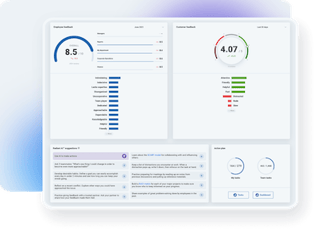
3 Misconceptions About Millennials, Corrected
Millennials are the largest generation represented in the US workforce, and many companies are orienting their talent strategies around this generation. But as the founder of a talent management software company who also happens to also be a Millennial, I often run into a few misconceptions company leaders have about my generation. Here are the three most common incorrect conclusions businesses draw about Millennials, corrected:
Misconception: Millennials are transient / disloyal
Correction: Millennials like to earn more money
This might be the most common woe company leaders express about Millennials. But, contrary to popular belief, more than half of Millennials are inclined to stay at a single job for a majority of their professional life, so it’s a mistake to dismiss Millennial turnover as inevitable. There are some pretty simple economical reasons for the stereotypical Millennial job-hopping:
The average raise is 3 percent. Whereas, the average salary increase after switching jobs is 10 to 20%. The cold hard truth of it is, staying at the same company is rarely the best financial decision for people in the early or middle stages of their careers. And don’t let it be said that Millennials don’t understand long-term investments:
For an employee making $50,000 a year at age 30, a single pay raise of 10% followed by 3% annual pay raises yields $175,000 more in earnings over 30 years compared to steady 3% raises. A single 20% raise at the same time yields $425,000 more in earnings.
Millennials don't change jobs after 1-2 years because they're flaky or impossible to please. We do it because job-hopping is the most effective way for an early or mid-level employee to increase their salary in a short time.
I get it. Salaries are touchy subjects. Plenty of managers have little to no control over them and are just as frustrated as their employees when they have to say no. Still, there is no corporate action that evokes the phrase "cut off your nose to spite your face" for me moreso than seeing a company deny a high-performing employee a 10% pay raise and then spend 33% recruiting and training a replacement when the employee leaves to get that 10% raise.
Plenty of companies have firm policies that employees cannot dictate when or how their compensation changes, and there's nothing wrong with that. But it’s inaccurate to paint an entire generation as disloyal because they’re making the right financial decisions for their futures.

Misconception: Millennials want to be catered to
Correction: Millennials want opportunities and flexibility
My next point will cover how Millennials work just as hard as any other generation, but it is fair to say Millennials have different expectations of work compared to other generations. This is often mischaracterized as a desire to be pampered, but Millennials don’t want companies to cater to their every whim. The data shows that Millennials actually predominantly want two things from work: opportunities to learn and flexible work options.
Learning and development opportunities
PwC research shows Millennials rank learning and development opportunities as the single most important benefit companies can provide. Without professional development opportunities, 67% of Millennials say they would leave their current position.
These figures mean talk is cheap for Millennials when it comes to learning and development opportunities. If there's no clear path to success, your driven Millennial employees will join the many workers who leave for better career opportunities.
Flexible work options
Flexible work options generally involve giving employees more freedom to decide when, where and how they get their work done. This includes telecommuting, 4 day work weeks or other non-conventional work patterns, flex time for other projects, etc.
These options are hugely significant to Millennials. Research by Capability Jane reveals 92% of Millennials identify flexibility as a top priority when job hunting. Deloitte research also found “flexible hours and location” to be one of the top three desired benefits for Millennials.

Misconception: Millennials are lazy
Correction: Millennials are more inclined to burn out
Contrary to this popular generalization, Millennials work just as hard, if not harder, than any other generation. 73% of Millennials work more than 40 hours per week, and nearly 1 out of 4 work more than 50 hours per week. In addition, 26% of Millennials globally work two or more jobs. We don’t work less. However, we do tend to burn out more.
Anne Helen Petersen’s powerful essay, How Millennials Became the Burnout Generation, explains how this lazy label developed from the behaviors of younger, middle-class, mostly white Millennials, and goes on to describe the multitude of factors that led to rising burnout in this generation, notably the constant pressure for “self-optimization.”
For other generations, Millennial burnout can be hard to understand, and I can see how it would be mischaracterized as a simple avoidance of hard work. But I encourage company leaders to read this essay and consider the many factors that lead to Millennials feeling more stressed, anxious, and depressed and consider investing in employee wellness to fight this phenomenon.
-
Today, the youngest Millennials are in their early to mid-twenties. The oldest are arriving at 40. This is a critical age range for companies to consider when investing in their workforce. Millennials can be found at entry-level, mid-level, and now senior management positions. If businesses want to adapt according and optimize the talent of this generation, it’s time to let go of these common misconceptions and gain a better understanding of what Millennials value about work.




